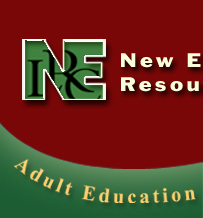
ESOL at the Ready: Making Study Accessible
Program
Jamaica Plain Adult Learning Center
144 McBride Street, Boston, Massachusetts 02130
Tel. 617-635-5201
Fax. 617-635-5081
http://alri.org/ltc/jpalp/
Mission
The Jamaica Plain Adult Learning Program strives to empower adults to advocate for themselves, their families and their communities through the provision of free basic education, ESOL and high school diploma programs. Established in 1978, the ALP aims to offer adults the tools they need to achieve their career, educational and personal goals and to offer the services necessary in the relocation process for immigrants and refugees.
Services
The Jamaica Plain Adult Learning Program (JP ALP) is part of Boston Community Centers and serves about 375 students a year. The center offers 9 levels of ESOL, ABE, and GED classes, and an External Diploma Program. Each class meets 3 days a week for 8 hours of weekly instruction. All classes are complemented by computer literacy classes. The ALP provides support services to students through a full-time guidance counselor. Additional courses in employability and citizenship are available.
Rationale and Background of the Practice
The Jamaica Plain Adult Learning Program ESOL distance learning program is the first of three pilot projects in Boston that received 2 ½ years of funding from the Boston Adult Literacy Fund. Its goal is to serve people who are on a waiting list and people who have had to stop out from classes. The JP ALP has about 400 people on the ESOL waiting list at any one time. The prospective students usually have to wait 6-12 months to enroll in classes. A study by the National Center for the Study of Adult learning and Literacy (NCSALL) reports that adult education programs reach only 3-5 % of those in need. Distance education is one way to reach and teach more adults. It is a good choice for students who prefer or need the flexible schedule of distance learning. Some students feel more confident using computers. Or, they want to repeat lessons multiple times without feeling embarrassed in front of peers. Distance education allows learners to remain connected to the adult education program if they have to stop out from regular classes, which aids learner persistence.
Description of the Practice
The core curriculum of the Jamaica Plain Adult Learning Program ESOL distance learning program is the English For All (EFA) curriculum, available online free of charge. It is a web-based multi-media system that was originally developed by Cyberstep Project for Los Angeles Unified School District, funded by the U.S. Department of Education. EFA materials include:
- The interactive website that is the core of the program: www.myefa.org
- 5 stand-alone video tapes or DVDs, each containing the movies to accompany four episodes, about 15 minutes each. The sets are available for purchase through Outreach and Technical Assistance Network (OTAN).They are free to copy.
- 5 CD-ROMs with the movies, designed to work with the EFA Web site. The complete set of English For All video CD-ROMs are also available for purchase from OTAN, and are free to copy.
- Printable materials for students and teachers are available on the EFA website as PDF or in Rich Text Format (compatible with most Word Processors).
Recruitment & Orientation
The Distance Learning (DL) Coordinator contacts people off
the waiting list. She also talks to the program counselor
to find out about people who have issues with attendance
or are expecting to stop out. About one third of the
people she contacts turn out to be interested, one third
are not, and about a third cannot be reached.
The JP ALP has found that increasing numbers of students have computers at home and email addresses. People who do not have a computer of their own are invited to use the learning center’s computer lab during open lab hours. Or if it is more convenient to the students, they are referred to the local library or computer technology centers. Some students use the program in CD format. Regardless of how they access the English For All curriculum, all distance education students are full members of the school community, are invited to school events, and can participate in tutoring.
The DL program entails two nights of orientation separated by one week which are scheduled as needed. Each student registers online during the first night of orientation. During the orientation, the DL Coordinator walks the students through the program in person and then checks in by phone during the intervening week to make sure they are set up and comfortable using the English For All program online. Students are given a REEP (Arlington Education & Employment Program) writing pre-assessment the second night of orientation. They also receive an Internet English handbook which the DL Coordinator developed for the students.
The Instructional Program
English for All consists of five real-life stories
that feature a multi-ethnic cast introduced by a friendly
wizard who guides students through 20 episodes and provides
simple explanations of the basic points of grammar that are
presented. Each episode has an engaging theme, such as Job
and Career Advancement, Support Systems for Injured Workers,
Managing Family Life and Dealing with Taxes, and covers specific
grammar points. The episodes offer
- supplementary material, especially for a civics-oriented curriculum.
- springboards for discussion to enhance learners’ abilities to deal with life in the United States.
- recommendations and guidance for managing common situations encountered by new arrivals and/or limited English proficient citizens.
- intriguing plots and vivid illustrations of how to actively participate in American life, be an advocate for civil rights, and be a responsible citizen and worker.
- real life conflicts leading the main characters to decide between two opposing courses of action, designed to allow learners to choose between these options, and view the consequences of each decision.
The academic skill level of the English for All curriculum is high beginning-high intermediate: Student Performance Level 4-6. A version for lower level is available for purchase. There are CD’s and DVD’s available for purchase, but they can be copied for free. English For All can also be accessed through iTunes but the lessons can take some time (about 45 minutes) to download. English For All has a built-in learning management system where teachers can see what students worked on and where they’re having difficulty. The DL Coordinator finds it’s easy for people who are new to computers to navigate. See www.myefa.org for more details. Click on Visitor to try out the episodes.
The DL Coordinator supplements English for All in the following ways:
- Students are assigned writing homework for each episode.
- Students receive supplemental learning activities, such as suggested websites that the Coordinator develops, often using an accompanying course website http://www.quia.com/pages/alpefa.html and templates from www.quia.com. The subscription to quia.com costs $49 a year.
- Monthly face-to-face and web meetings are held for students who want to work on their conversation skills
- Monthly individual teacher-student meetings are held by phone or webcam. Students can borrow webcams.
- Students can also borrow grammar and writing books, such as Grammar in Use and Great Paragraphs, for a month at a time.
Students avail themselves of all these supplemental activities. There is a fairly high volume of emails back and forth between the DL Coordinator and the students, about 80 emails a month for the 20 students. The DL Coordinator follows up with each student who stops participating first by email, then by phone and finally by postcard. If she receives no response, student is considered a drop-out.
Challenges
The challenges to date include:
- The Mass. Department of Education mandated assessment, i.e. REEP is not a perfect match for English For All but it works adequately. EFA doesn’t include any writing or speaking practice and the topics it covers don’t mesh well with the topics tested in REEP or the BEST Plus. Diana added a writing component using the teacher resources on the EFA website.
- Having to over-enroll people by 30% for the orientation due to no-shows.
- Not all technology problems have lent themselves to easy or any solutions. For example, some students have experienced difficulties playing movies using the CDs.
Evidence of Impact and Effectiveness
Nine months into the program, 29 students have participated in the DL program.
- 7 out of 10 who have participated at least 3 months have improved their REEP score.
- 29 out of 29 have met their personal goals, such as improving computer skills, language skills, talking with people about services, helping children with homework, and learning about U.S. culture as evidenced by either formal testing, student reporting, student performance on the EFA quizzes and tests, or Diana’s observations.
- 19 out of 29 have met program goals, such as entering a face-to-face class or participating the length of time that they committed to.
Cost & Staffing
The first year budget was $15,800, including the start-up phase after which the annual cost is about $8,000. The distance education staff consists of one part-time Coordinator/Teacher. The start-up took roughly 120 hours of DL Coordinator’s time to do: researching best practices, and course design, learning about the EFA program, designing the orientation/assessment, doing student recruitment, attending meetings with funders and program director, and piloting the DL program. Now it takes about 10 hours per week of DL Coordinator’s time, serving 20 students, depending on if there’s a web or face-to-face meeting, not counting recruitment and preparation time for the meetings.
Implications for Practice, Policy and Research
The JP ALP’s approach to using English For All is highly replicable with a relatively modest infusion of additional resources and staff time by taking good advantage of an existing free resource. It expands self-study opportunities for English Language Learners, given that the demand for ESOL instruction exceeds the available classroom slots in many programs and that many adults have to stop out from time to time.
Counting hours of attendance for self-study students can be challenging if their slots are funded with federal dollars that are tied to the National Reporting System. According to Project IDEAL, “Assessment and accountability are among the most challenging aspects of implementing distance education programs. Will distance learning students be expected to meet the same standards for performance as classroom students? Will the state measure seat time for distance students? If so, how? Project IDEAL is a consortium of states working to develop effective distance education programs for adult learners. The Project IDEAL Support Center at the University of Michigan helps consortium states by developing training materials and web-based tools. The Center provides technical support in the areas of teacher training, research design, data collection, data analysis, and reporting. For more information, see Project IDEAL at www.projectideal.org.
There is a dearth of research on the effectiveness of different modes of online learning in the adult basic education or ESOL setting: facilitated course, self-study, and blended. Likewise, the relative effectiveness of different modes of instruction ( e.g. telephone, webcam, workbooks) that supplement self-paced distance learning programs such as English For All is unknown.
REFERENCES
Comings, J., Parrella, A. & Soricone,. S. (2002). Helping
adults persist: Four supports in Focus on Basics, Volume
4, Issue A. Boston, MA: National Center for the Study
of Adult Learning and Literacy.
Petty, L. I. (2005). State Policy for Distance Education Programs for Adult Learners (Working Paper 7). http://www.projectideal.org/IDEALpublications.htm



